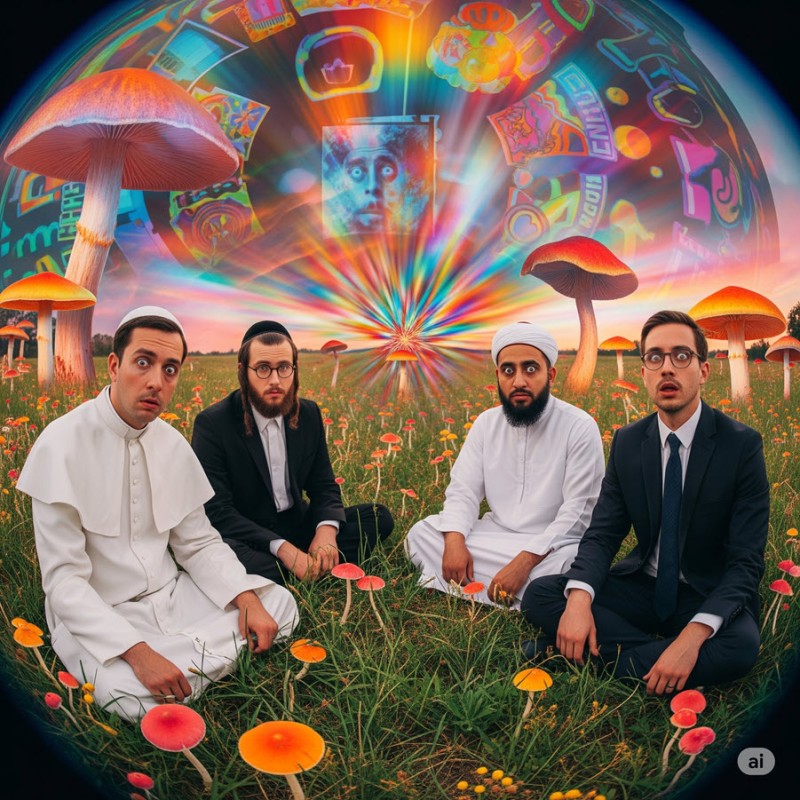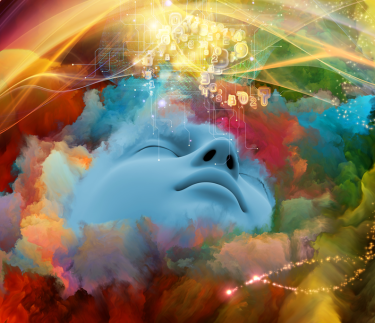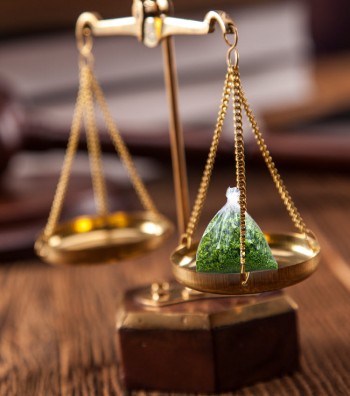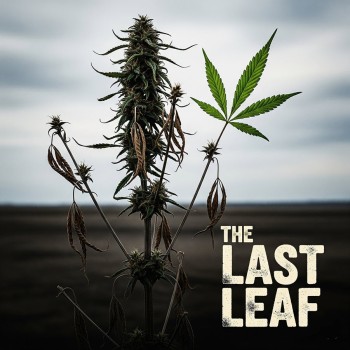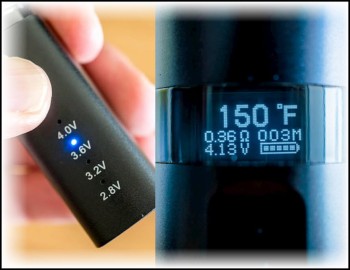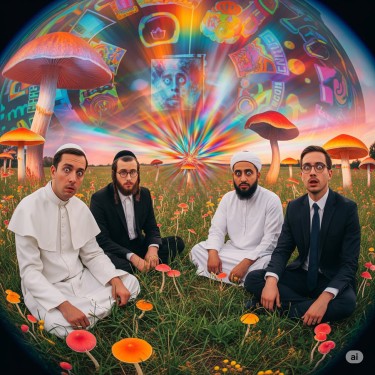
Clergymen In Different Religions Were Given Psychedelics By Researchers
They Changed Up Their Careers And Became Psychedelic-Curious
A great deal of people take psychedelics to have a spiritual, religious experience.
But what happens when you give psychedelics to people whose job it is to be religious? You’d be surprised.
A unique clinical trial conducted by researchers at the New York University together with the Johns Hopkins University around a decade ago, involved administering psilocybin to clergymen in various religions. The participants included a Catholic priest, five rabbis, a Muslim leader, and a Protestant minister. The results were just published last month by Kathryn Post of Religion News Service, which was discussed in NPR.
Good Friday Experiment
While it isn’t the first study to analyze the impact of psychedelics on religious people, it offered a more structured methodology. The 1962 Good Friday Experiment involved 10 seminary students who were given psilocybin while another 10 were given a placebo; they then listened to a sermon by a Christian mystic during Good Friday service at the Marsh Chapel in Boston University. But with the newer study, participants were asked to go through interviews and screenings. They also took what’s considered to be moderately higher doses of psilocybin.
It was considered one of the most iconic psychedelic studies out there, which sought to understand how psilocybin could help induce a mystical experience. One of the most pivotal moments of the experiment occurred when one of the participants suddenly entered into an overwhelming spiritual state, claiming to have a biblical message, which prompted him to stand up in the middle of the church. He even felt compelled to run out of the chapel and head to the Boston University Campus.
While there were numerous dramatic moments in the trial, this made it clear that psychedelics have the ability to successful induce a powerful spiritual and mystical episode among people, especially when it takes place in an energetically charged setting, such as a church.
Johns Hopkins and NYU Study
According to one of the participants of the latter study, Rabbi Julie Danan, a leader of Delaware’s Seaside Jewish Community, it was “the most powerful and overwhelming spiritual experience of my life,” she tells Religion News Service. Needless to say, the sentiment was shared by her other participants. Many psychedelic enthusiasts were looking forward to the results of the study which they were hoping could yield positive results, such as reducing the stigma that some religious populations have against entheogens. In addition, they had hoped that the experiment would add to the spiritual value of psychedelics.
According to the results, 96% of the participants said that taking psilocybin counted as one of their top 5 spiritually significant experiences in their lives. Meanwhile, 79% of them considered it meaningful, and 42% rated it as psychologically challenging.
However, what was most striking that since the study, it’s clear that the United States has undergone a psychedelic revolution. It’s widely being used as a spiritual and therapeutic tool, and the study’s participants seemed to have responded to a calling – one that’s different from their previous status.
These included Rev. Jaime Clark-Soles, who eventually pursued researching at Emory and Harvard, with a focus on spirituality and psychedelics, while Rev. Jeff Vidt advocates for spiritual caregivers to take part in psychedelic research; he’s now a board member at the Canadian Association for Spiritual Care. In addition, other participants began taking it upon themselves to help individuals explore psychedelics.
While not all subjects had a positive takeaway from the experiment, it’s clear that the results were significant either way.
What Happens When You Give Already Religious People – Psychedelics?!
While we think we’ve had a profound, jaw-dropping experience on magic mushrooms or just about any kind of psychedelics, this kind of spiritual encounter is much more intense among religious professionals. After all, they’re already used to contemplating about life’s deeper meanings, a divine presence, and the spiritual connections that exist in this realm – even those that aren’t visible to the naked eye. Also, the psyche of spiritual people already contains a framework that allows them to interpret and understand the experience in a different level.
And while regular people may not know what to expect out of a religious experience, spiritual people already hope for it, or even expect it. They are much more likely to expect a transcendent experience, which will have an influence on their psychedelic trip. In the same vein, if we have low or no expectations for any spiritual experience during our trip, then we likely will not have one – or at least a pleasant one. The greater our expectation or hope for a spiritually profound or transcendent experience, the more likely our trip could be a mystical one!
Another thing that separates their psychedelic experience from ours is that clergymen, or religious professionals, could view the psychedelic experience as a channel to the divine; a gateway or an opening that’s given as a gift. A privilege, perhaps. On the other hand, many of us view it as a ‘trip’, an activity we could do for fun with a side of a spiritual awakening, or as a means of treating physical or mental ailments. When religious people frame the experience as a sacred moment or a divine encounter of sorts, then it could certainly become much more spiritually significant.
Conclusion
If this is the impact that psychedelics can have on religious people, we can see how it can affect the regular person, too. We may not have an experience that’s as profound or powerful, but psychedelics can foster growth, healing, and boost the likelihood of a spiritual experience especially when intention, set, and setting are all curated.
